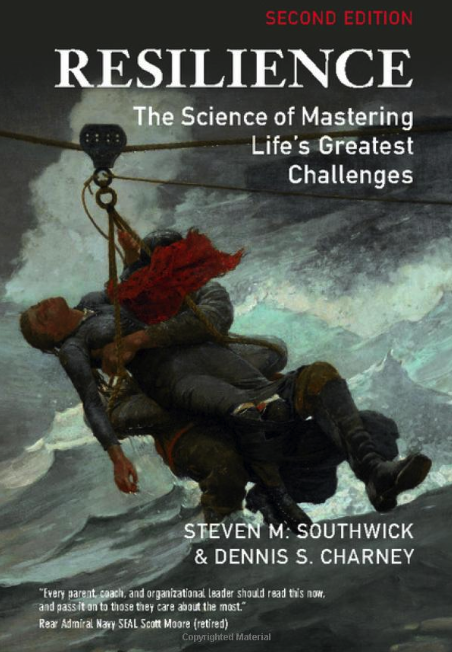Adversity happens to everyone. Some experience loss from the death of a loved one, a breakup, war, disease, trauma, job loss, betrayals. Some people have these moments become life changing in a way that results in despair, depression and suicide. Others, those with rockstar resilience bounce back better than ever. That which does not kill them, makes them stronger.
Drs. Steven Southwick and Dennis Charney have been studying the effects of trauma on resilience for nearly 20 years.
They have questioned why some survivors can overcome extreme adversity and go on to have purposeful lives and posttraumatic growth, while others don’t.
While gathering information for their book Resilience: The Science of Mastering Life’s Greatest Challenges, they worked with people who have endured, survived, and thrived in spite of extreme stress, such as those in the US Army Special Forces and prisoners of war.
1. Optimistic, but balanced with realism.
2. Face rather than ignore fears.
3. Strong sense of right and wrong.
4. Participate in a spiritual practice or group with strong beliefs.
5. Have a social support system to give and receive from others.
6. Have resilient role models who they emulate.
7. Make physical fitness a priority.
8. Keep their minds fit by engaging in lifelong learning.
9. Stay mentally flexible with a good sense of humour.
10. They have a calling, mission, or purpose in life.

You don't need a crises to be the catalyst to further develop your personal growth and resilience. We can adopt some of these traits before adversity occurs so that which doesn't kill us, makes us stronger!
What’s the Purpose of a Purpose in Life?
[et_pb_ro...
Presuppositions of NLP
A person always makes the best choice they can, given their map of reality at the time. The choice may be self-defeating, bizarre or evil, but for them, it seems the best way forward. Give them a better choice in their map of reality and they will take it. Even better – help them upgrade their map to one with more choices in it. Another way of putting this is: We all act according to the level of awareness that’s available to us in that moment. The reason why people regret certain past actions is because they have greater awareness now, and because of this phenomena, they eventually overcome their current regret too. Based on the premise of this presupposition, whoever caused us pain in the past, did so based on their level of awareness at that time. They were trying to fulfil a certain value in their old map of reality and never knew how else to go about it back then. Looking back on that past hurt from a broader and resourceful perspective in the present can enable healing and release stuck emotions. Therefore, the broader our perspectives now, the more choices we have – in the past, present and future.














